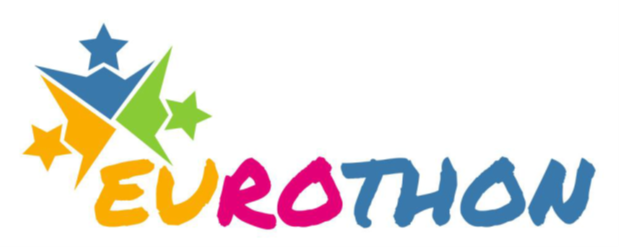Belgium – Literature
Sandwiched between the grand and prolific literary traditions of France, Germany and the UK, Belgium’s own substantial literary contributions often get dwarfed. With so much coming out of the other countries, little of Belgium’s literature gets widely translated or marketed on the international stage.
But little Belgium has produced quite a number of novels that give someone living here a deeper, richer sense of the society and history surrounding them. So if you’re looking for a good summer read, here are six great books by Belgian (or Belgian-based) writers to let yourself get lost in.
1. Chika Unigwe
While not actually holding Belgian nationality, leading the list is Nigerian writer Chika Unigwe, one of the best voices to come out of the Belgian literary scene in recent years. Though she recently moved to the United States, Unigwe lived in Turnhout, Flanders for many years with her husband and children, and regularly publishes in both Dutch and English.
Unigwe’s novel On Black Sisters Street (Fata Morgana in Dutch) received wide critical acclaim, telling the story of four African women who meet working as sex workers in the windows of Antwerp’s red-light district. In a world of silence and facelessness, these women band together to share their stories in the face of tragedy. The book earned Unigwe the 2012 Nigeria Prize for Literature.
2. Hugo Claus
Arguably the most important Flemish writer of the 20th century, Hugo Claus, born in Bruges in 1929, has written over 20 novels, 60 theatre pieces and thousands of lines of poetry. Unfortunately, only a small portion of these works has been translated into English.
Among the works that have been translated is Claus’ beautifully crafted, semi-autobiographical bildungsroman The Sorrow of Belgium (Het verdriet van België) published in 1983. A must-read of Belgian literature, this novel tells the story of a Louis Seynaeve (an alter ego of Claus) and his coming of age in a right-wing, Flemish nationalist family during German occupation in World War Two. When Louis discovers the literature banned by Nazi German leadership, his world is opened to new ideas disallowed by his far-right environment. These inspire him to become a writer himself.
3. Amélie Nothomb
Among the most prolific writers on the list, Amélie Nothomb has produced almost a novel a year since she published her first book, Hygiene and the Assassin (Hygiène de l’assassin), in 1992.
Born in the Brussels neighbourhood of Etterbeek, Nothomb grew up in several countries including Japan, China, the UK and various places in southeast Asia. Her time in Japan, where she spent the first five years of her life, served as the basis for her best-known novel called Fear and Trembling (Stupeur et tremblements), which earned her the Grand Prix for a novel form the Academie Française in 1999. In the novel, a Belgian woman returns to Japan, where she lived as a child, for a job as a translator. It is the tale of the woman’s seemingly endless travails in her new position as she tries to adapt to the Japanese way of working.
4. Georges Simenon
While Amélie Nothomb’s a-book-a-year may be impressive to some, she doesn’t hold candle to one of Belgium’s most beloved writers, Georges Simenon. By his death in 1989, Liegeoise writer Georges Simenon had published over 375 works, including 75 novels and 28 short stories in his fictional detective series featuring Inspector Jules Maigret. The Maigret series has been translated into over 50 languages, making Simenon the most translated French-speaking author in the world.
With so many books to choose from, a great place to start with Simenon is at the beginning with Pietr the Latvian (Pietr-le-Letton), the first of the Inspector Maigret series published in 1931. This book introduces the clever gumshoe, who you can then follow in his crime-solving efforts from France to Belgium to New York over the course of four decades.
5. Louis Paul Boon
Born in Aaslt in 1912, Louis Paul Boon was one of the first writers to lend a Flemish voice to Dutch-language fiction, which previously had the tendency in Belgium to adopt Dutch vocabulary and manners of expression from The Netherlands as that was considered the literary voice of the language.
Chapel Road (De Kapellekensbaan, 1953), considered Boon’s masterpiece and one of the most important Dutch-language novels of the 20th century, is really three stories wrapped in one: one tells the story of a down-and-out girl growing up in a 19th-century slum in a fictionalised Aalst; another is the story of the author himself writing a story about a down-and-out girl growing up in a 19th-century slum in a fictionalised Aalst and the input of his friends into the novel; and the last is a reworking of the classic myth of Reynard the fox.
Both Chapel Road and Boon’s other most famous novel My little war (Mijn kleine oorlog, 1946) have been translated into English.
6. Dimitri Verhulst
Dimitri Verhulst (born in 1972) has been called the new generation’s Louis Paul Boon both for sharing the older author’s hometown of Aalst and for his critical but compassionate view on Belgian life. Verhulst is known for his scathing tongue, which has gotten him into occasional legal troubles. The full wrath of his can ire can be found directed against his own countryfolk in his short novel Christ’s entry into Brussels.
Verhulst’s most well-known novel is The Misfortunates (De helaasheid der dingen, 2006), which was made into a popular film in 2009. Loosely autobiographical, it tells the story of a young writer who when he learns his partner is pregnant begins to reflect on his youth growing in in a piecemeal of alcoholics. Sometimes comedic and crude, other times heart-warming, it is as much a humorous look back on childhood as it is a serious family drama dealing with themes of poverty, neglect and addiction.
Written by Katy Faye Desmond; 28/5/2015. Source: https://www.thebulletin.be/reading-list-6-belgium-based-authors-you-need-read




